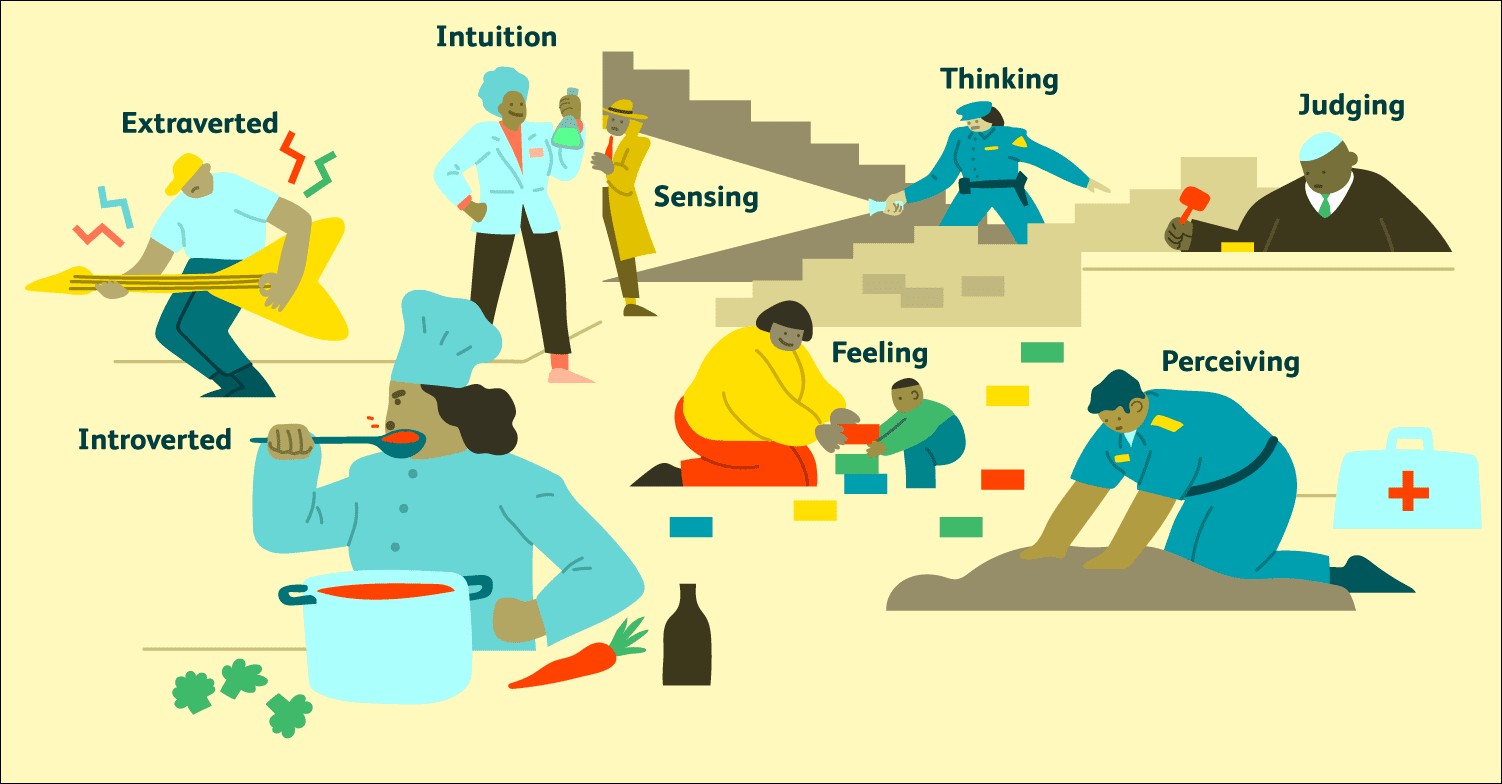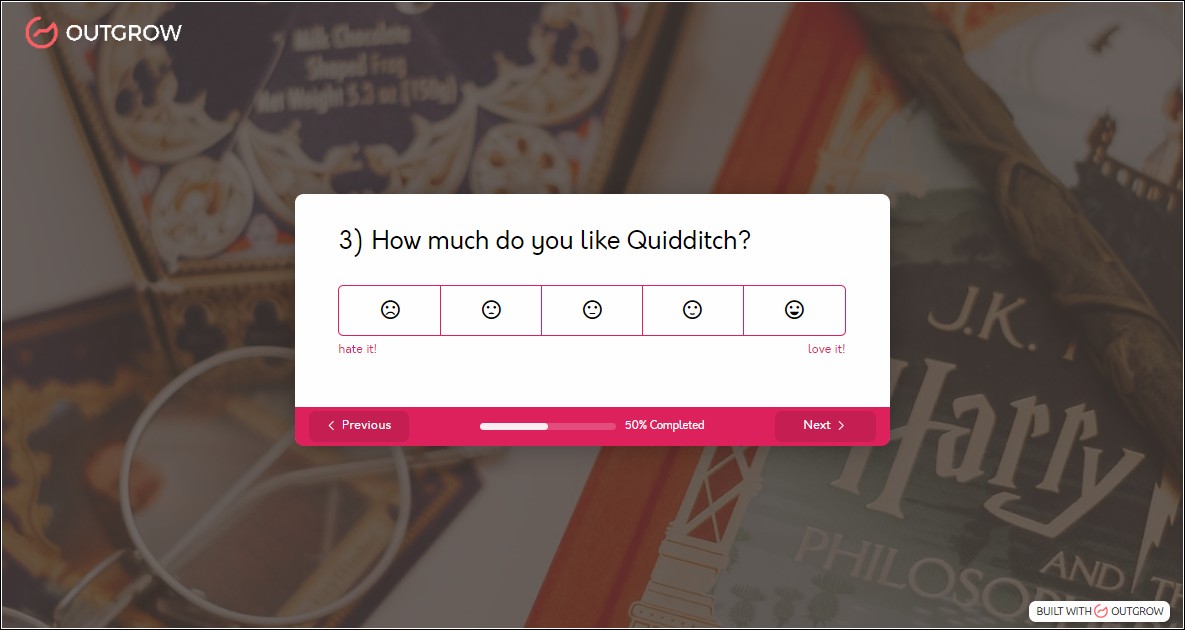What Does Personality Means?
Personality refers to the pattern of thoughts, feelings, and behaviors that make an individual unique.
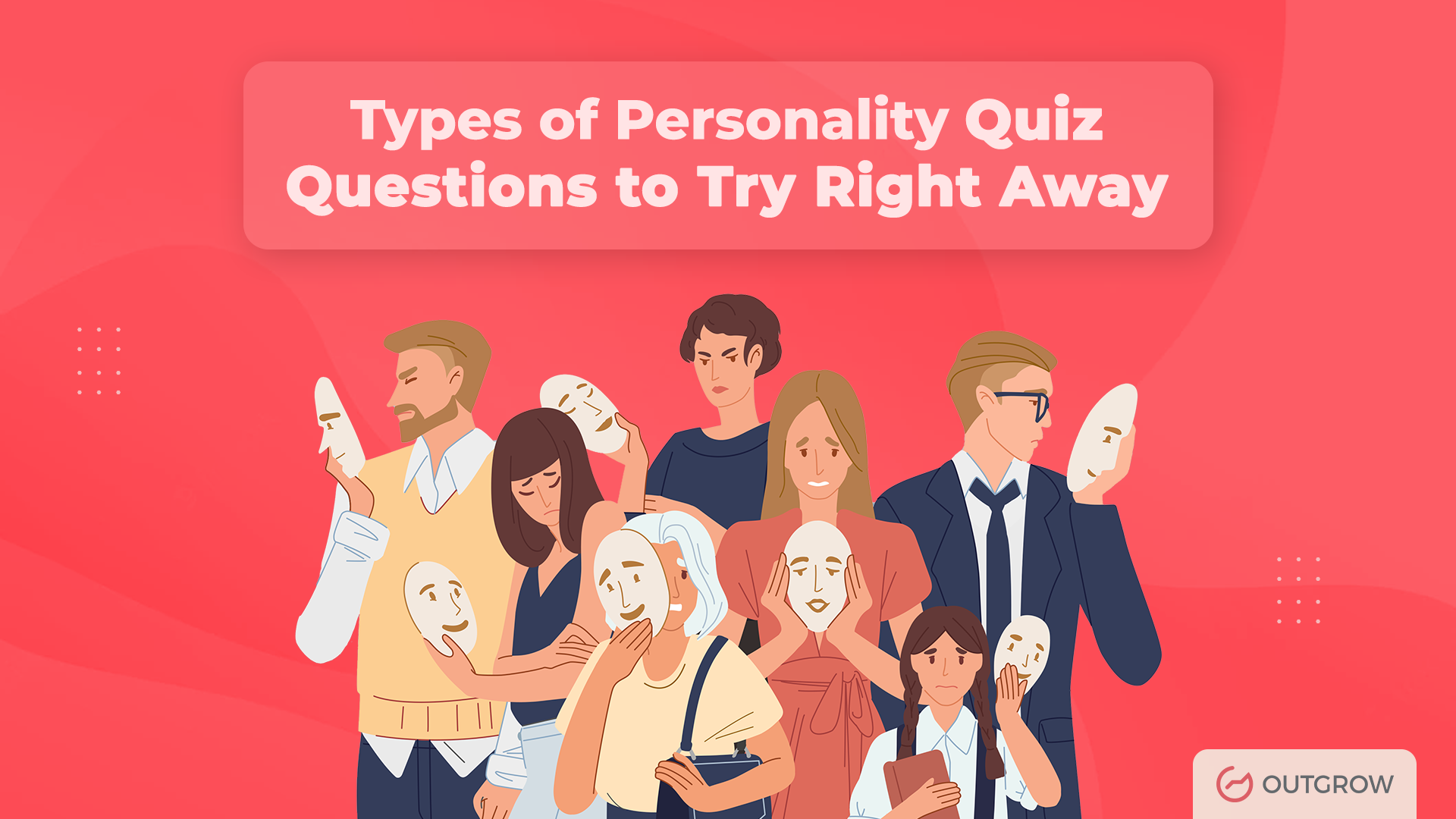
So, What Is a Personality Quiz?
A personality quiz is an interactive tool used to assess human personality. In addition to being quick, easy, and fun to take for users, they generate deep insights into their pain points and preferences.
Hence, personality assessments are great marketing tools. They are a sure-shot way to boost engagement and conversions for businesses.
Why Are Personality Tests Important In Market Research?
A personality test can be helpful to market research professionals in client-facing roles. It helps them evaluate the needs of customers.
Engaging with customers and probing their interests, desires, and perspectives can allow organizations to understand better customers’ purchasing habits, tastes in products, and other factors.
Furthermore, a personality quiz can help businesses qualify and score a lead. The results can clearly indicate if they are a relevant audience for their offerings.
A company’s ability to meet customer needs can significantly increase its efficiency in achieving its marketing goals. Thus, personality tests offer an effective way to engage customers. It measures an organization’s ability to satisfy them.

Source: Giphy
Types of Personality Quizzes
The purpose of personality quizzes is to gain insight into people and what motivates them. Various techniques are used to measure the characteristic patterns of traits that people exhibit in multiple situations. Also, let’s have a look at some of the different types of personality quizzes:
1. Myers-Briggs Type Indicator
The Myers-Briggs Type Indicator (MBTI) is an introspective test that determines a person’s personality type and preferred psychological style.
The purpose of this assessment is to assign individuals into one of four categories which are:
Extraversion (E) – Introversion (I)
Sensing (S) – Intuition (N)
Thinking (T) – Feeling (F)
Judging (J) – Perceiving (P)
These are based on how they perceive their environment and make decisions. This enables the respondent to explore their own personalities more deeply.
Marketers putting together a team can use MBTI information to determine what personality types their customers are. It helps them in providing the customers with the correct product & services.
For example, which of these statements describes you best:
a. I keep my thoughts to myself or b. I speak up
a. I prefer to improvise or b. I prefer to follow a clear procedure
a. I like to cooperate or b. I like to compete
Source: verywellmind
2. Revised NEO Personality Inventory (NEO PI-R)
The NEO Personality Inventory evaluates adult personality on the basis of five dimensions: emotional, interpersonal, experiential, attitudinal, and motivational styles.
It provides a detailed personality description that can be a valuable resource for a variety of professionals. A high openness score would denote an individual who is creative and interested in new trends. This can be considered important for marketers while targeting the target audience.
This test takes around 35–45 minutes using an online test platform, in which the candidate provides answers to questions (e.g. whether they agree or disagree, or find it most or least like themselves).
3. 16 Personality Factor Questionnaire
Cattell developed an assessment based on sixteen personality factors.
As part of this psychometric test, respondents are evaluated against these sixteen different factors that comprise their personality.

Source: mbaskool
Respondents must choose one of three different options from the forced-choice questions.
This quiz enables you to see the whole picture with an instrument that measures personality in both professional and personal life. It can be considered helpful for marketers to see exactly what their target audience wants. By observing new customers’ behavior, marketers can see how to approach them to make them interested in their products and services.
For example, you can ask situational questions or questions about their personality traits. Some of these questions are:
(i) “I will continue to work on something until it is perfect”
(ii) “I prefer to see concrete results.”
(iii) “I prefer others to make decisions.”
(iv) “I enjoy being around other people.”
Each 16PF is styled for the career field it is being used in. And the questions will be more targeted to identify the best people for that field.
4. HEXACO Personality Inventory-Revised
The HEXACO Personality Inventory-Revised instrument assesses the six major dimensions of personality: honesty-humility, Emotionality, eXtraversion, Agreeableness, Conscientiousness, and Openness to Experience.
For example, here are some of the situational questions:
(i) I would be quite bored by a visit to an art gallery.
(ii)I clean my house or office quite frequently.
(iii) I feel reasonably satisfied with myself.
(iv) I rarely express my opinions in-office meetings.

Source: medium
5. DISC personality test
DISC assessments are behavioral assessment tools that help people identify their leadership styles and improve teamwork in the workplace.
The purpose of DISC is to help your employees and customers become more self-aware. Self-awareness makes it easier to recognize your client’s strengths to harness them and their shortcomings as a base on which to improve.
For example, you can try out this DISC personality test on Outgrow:

Source: Outgrow
Types of Personality Quiz Questions (With Examples)
The purpose of personality questions is to gain a deeper understanding of your character, values, principles, passions, work ethic, and ability to self-regulate and reflect.
And if you, as a marketer, frame the right questions for your marketing quiz, you will be able to tap into their actual pain points and needs.
This can even be useful for the HRs of an organization. Employees can benefit from knowing more about each other through personality questions. This can make working together easier.
To help you generate the most insightful responses, let’s see what kind of quiz questions you can create
1. Statement-based personality questions
Statement-based questions are the most common type of personality quiz questions.
In this type, you receive a list of statements and are asked which of those statements you agree or disagree with.
For example, you might receive the following statement: ‘I am never bothered by criticism’.
After you read the statement, you will be asked to rate your agreement with it on a scale of 1 to 5. Here 1 is the strongly disagree, and 5 is the strongly agree.
Some examples of statement-based questions are:
(i) I thrive in team situations.
(ii) It is easy for me to adapt to changes in my routine.
(iii) I certainly never make a mistake.
(iv) When people are rude to me, I don’t mind it.
(v) I consistently put my full energy and time into everything I do.
(i) I generally like to talk to strangers.
2. Close-ended personality questions
Closed-ended questions are narrowly focused and usually answered with a single word or by selecting from a limited number of choices.
It provides a specified range of options that the respondent must choose from.
For example, you are asked the following question: ‘Did you experience good customer service?’
You will then be asked to select from the two given options: ‘ Yes’ or ‘No’.
Some examples of closed-ended questions are:
(i) Do you believe the good luck charm works?
(ii) Do you like where you live?
(iii) Do you overall consider yourself to be a focused person?
(iv) Do you listen to podcasts?
(v) Do you occasionally volunteer at a charity?
(vi) Do you sing in the shower?

3. Open-ended personality questions
Open-ended questions can be answered in detail. It cannot be answered with ‘yes’ or ‘no’. The respondents have to elaborate on their points.
Open-ended questions are useful when you want to understand your customers and their needs better and to learn more about their motivations or the reason behind their behavior with your product or service.
For example, you are asked the following question: ‘If you would want to change one thing about this page, what would you change?’
You will only be able to answer it by elaborating on your point.
Some examples of open-ended questions are:
(i) What bird do you relate to most and why?
(ii) How would your best friend describe you?
(iii) What interests/hobbies do you hope to pursue this year?
(iv) What has been your biggest failure since childhood?
(v) What do you occasionally do on the weekends?
(vi) Which character do you think you are from the Big Bang Theory?
(vii) If you were an ice cream flavor, which one would you be?

How to Make a Personality Quiz on Outgrow?
With Outgrow’s no-code builder, you can create the most appealing personality quiz templates in a matter of minutes.
The basic steps you need to follow are:
1. Sign up with Outgrow for free (if you haven’t already).
2. On your dashboard, select ‘Outcome Quiz’ under the ‘Select a Content Type’ section.
Eventually feel free to browse other content types as well, if you want!
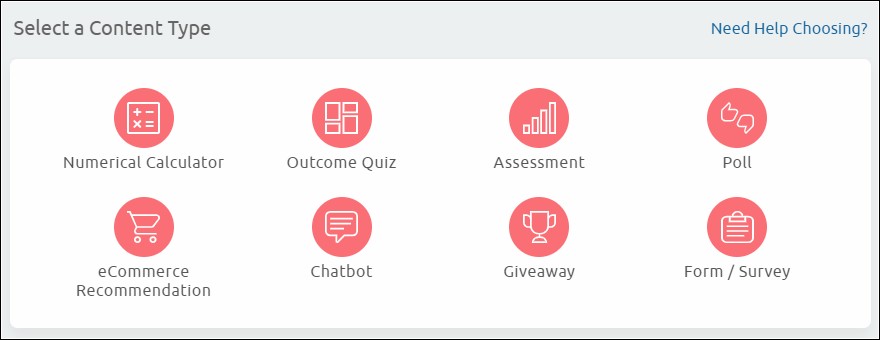
3. Afterward, click on ‘Select a Template’ or ‘Start from Scratch’.
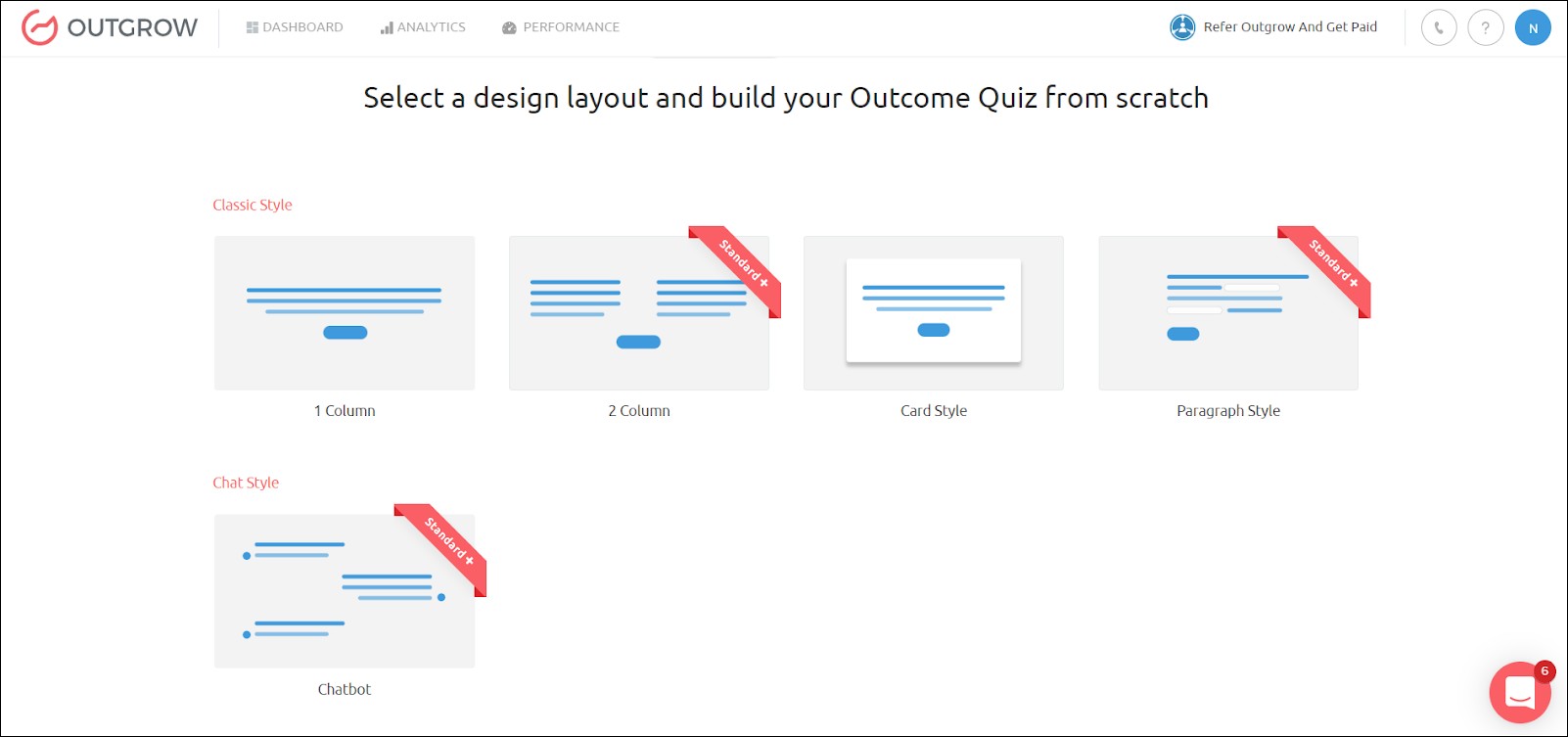
4. After selecting a personality quiz template of your choice, you’ll be able to access the builder.
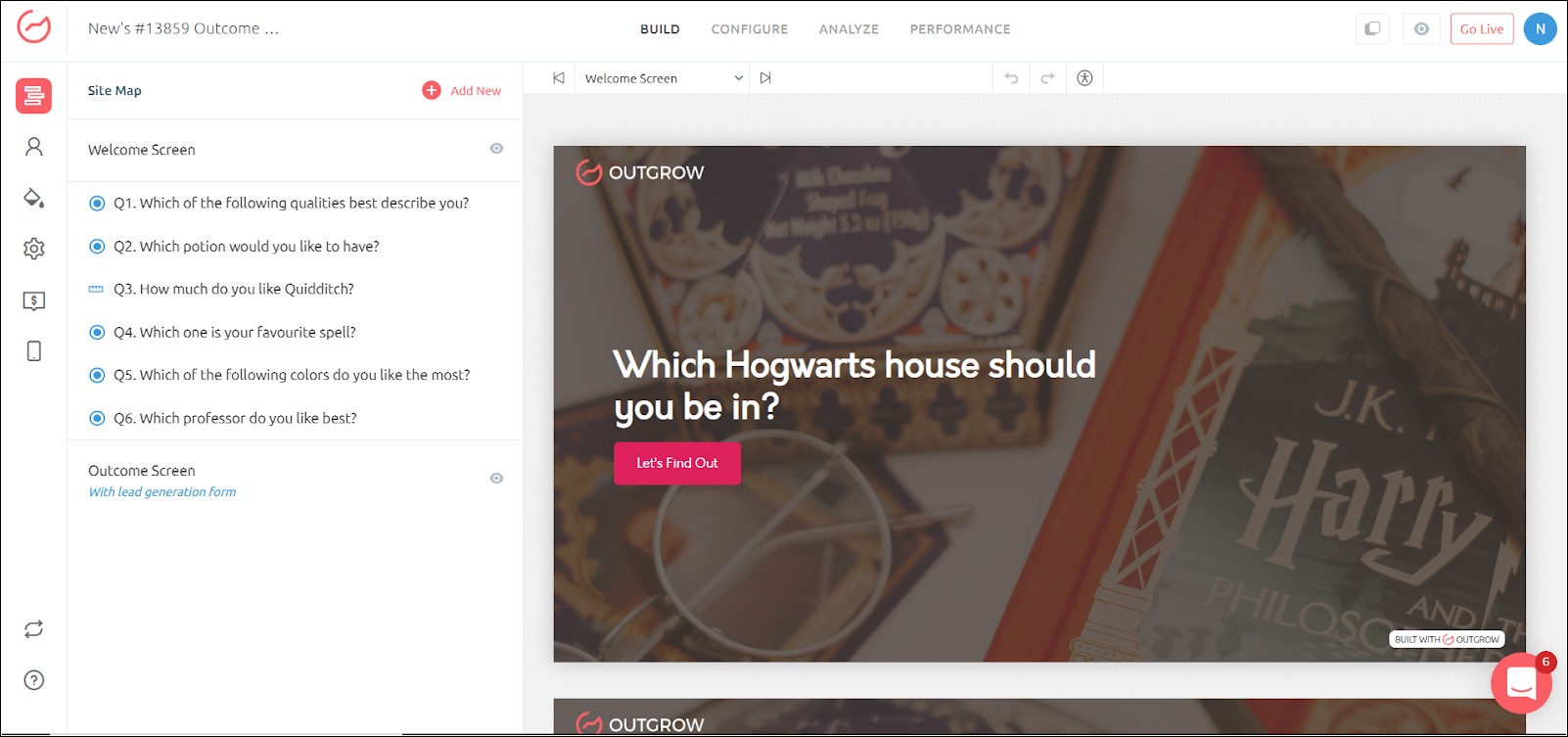
5. On the left side of the page, you can edit your questions, font, colors, and many more things.
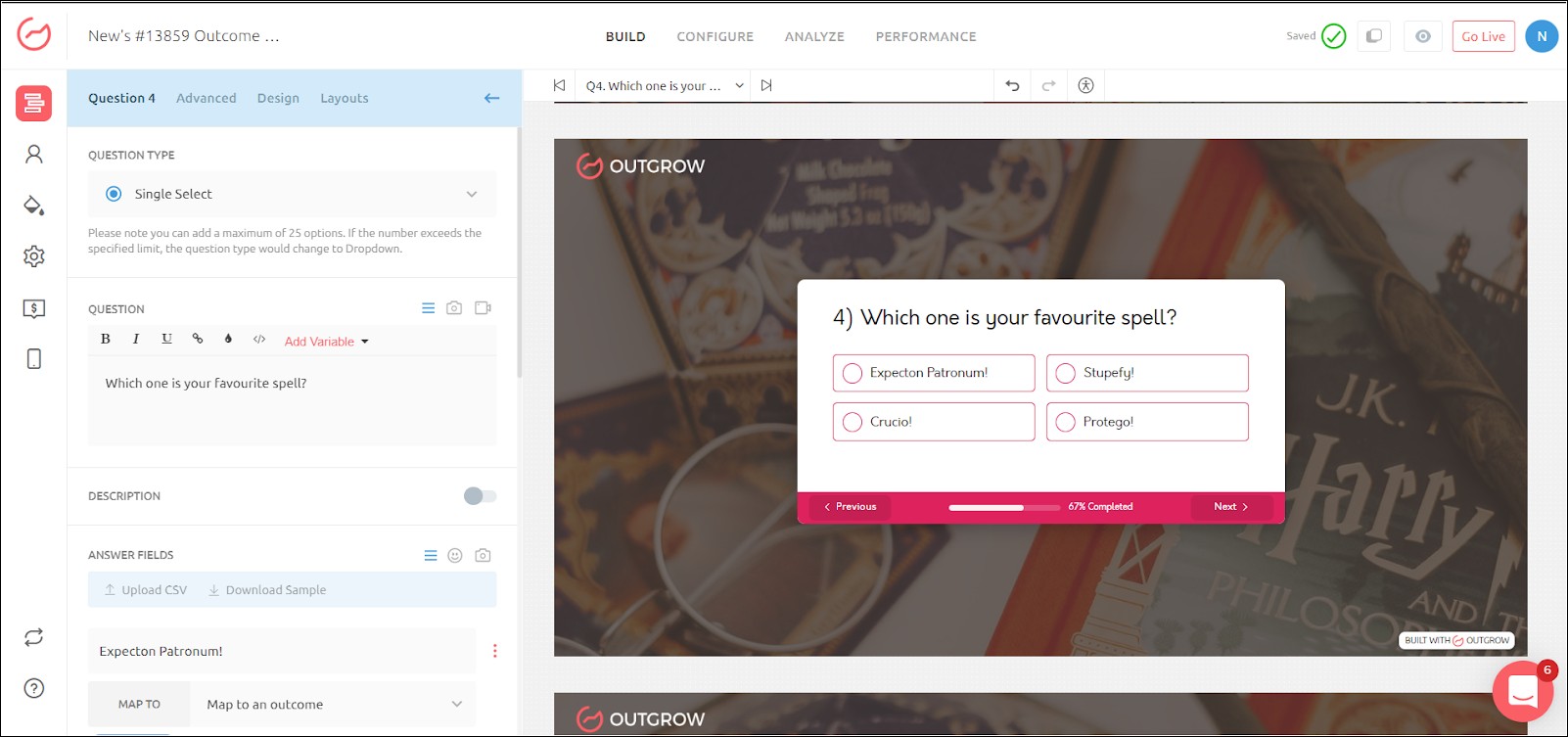
6. Other than editing your questions, you can also choose questions from a variety of question types according to the type of personality quiz you are making.
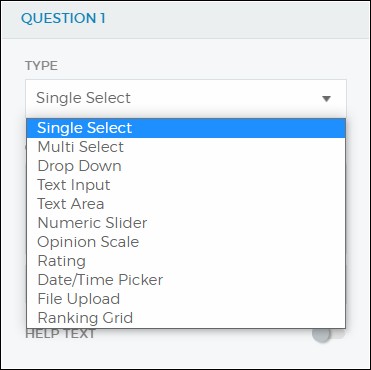
7. Afterwards, it’s time to go live! Click on the live button in the top right corner.
Using Outgrow’s no-code builder, you can easily create a personality quiz in seven easy steps!
Tips to Create Great Personality Quiz Questions
Now that you’ve seen the basics of a personality quiz and learned how to make one with Outgrow, it’s time to set up your quiz questions.
Care for some great tips before you get started? Here you go!
1. Keep It Short
You should aim for 6 to 10 questions for your quiz. This should take your audience about two to three minutes to complete.
Keeping things simple and sweet will keep people’s attention.
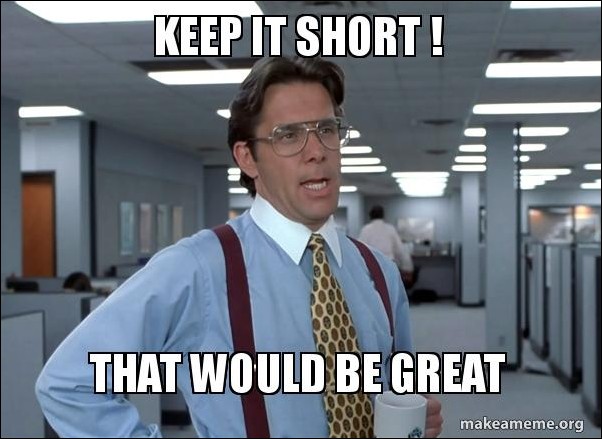
2. Personalize Your Quiz
Give your quiz some personality by adding a human touch.
Make your audience feel comfortable as if you were talking to them face-to-face. That way they will be more inclined to opt-in in the future.
3. Ask questions using images
Adding pictures to your quiz makes it more fun and relevant. You can also use them to make it feel more like a trivia game.
4. Lead generation form
After drafting your quiz questions, it’s time for you to create your lead generation form. Capturing leads helps you grow your email list by gathering contact information through these personality quizzes.
Conclusion
A personality quiz is one of the most popular forms of interactive marketing you need to try for your next campaign.
Quizzes aren’t just fun to take and share, but they’re also a great way to collect data ethically. So why not try them out today? Try outgrow’s quiz maker today and see it for yourself.
Along with quizzes, you can also make other interactive content like polls, surveys, calculators, giveaways, etc. using Outgrow’s no-code interactive builder.
So what are you waiting for? Sign up for Outgrow’s 7-day free trial today and create your interactive content – no coding and no credit cards required, we promise!
FAQs
1. What are the big five personality traits?
The big five personality traits are:
(i) Openness- Openness measures how imaginative and creative a person is, as opposed to how conventional and down-to-earth they may be.
(ii) Conscientiousness- Conscientiousness is the ability of an individual to be careful, deliberate, self-disciplined, and organized.
(iii) Extraversion- The extraversion scale measures how sociable, outgoing, and energetic someone is.
(iv) Agreeableness- Agreeableness measures an individual’s tendencies with respect to social harmony.
(v) Neuroticism- Neuroticism is an indicator of an individual’s emotional stability and level of negative feelings.
2. What is the least common personality type?
INFJ is considered the least common personality type and makes up 2% of the general population. An INFJ is someone with Introverted, Intuitive, Feeling, and Judging personality traits. Hence, as an INFJ, you are typically more introverted and rely on your intuition to gather information.
Here is a great resource that describes the Myers-Briggs Type Indicator, its history, basic definitions, and key points to understand. My favorite part is the career suggestions for different personality types, which can be helpful when choosing your path.
You can check it out here: https://business-essay.com/blog/mbti-student-personality-types/.
